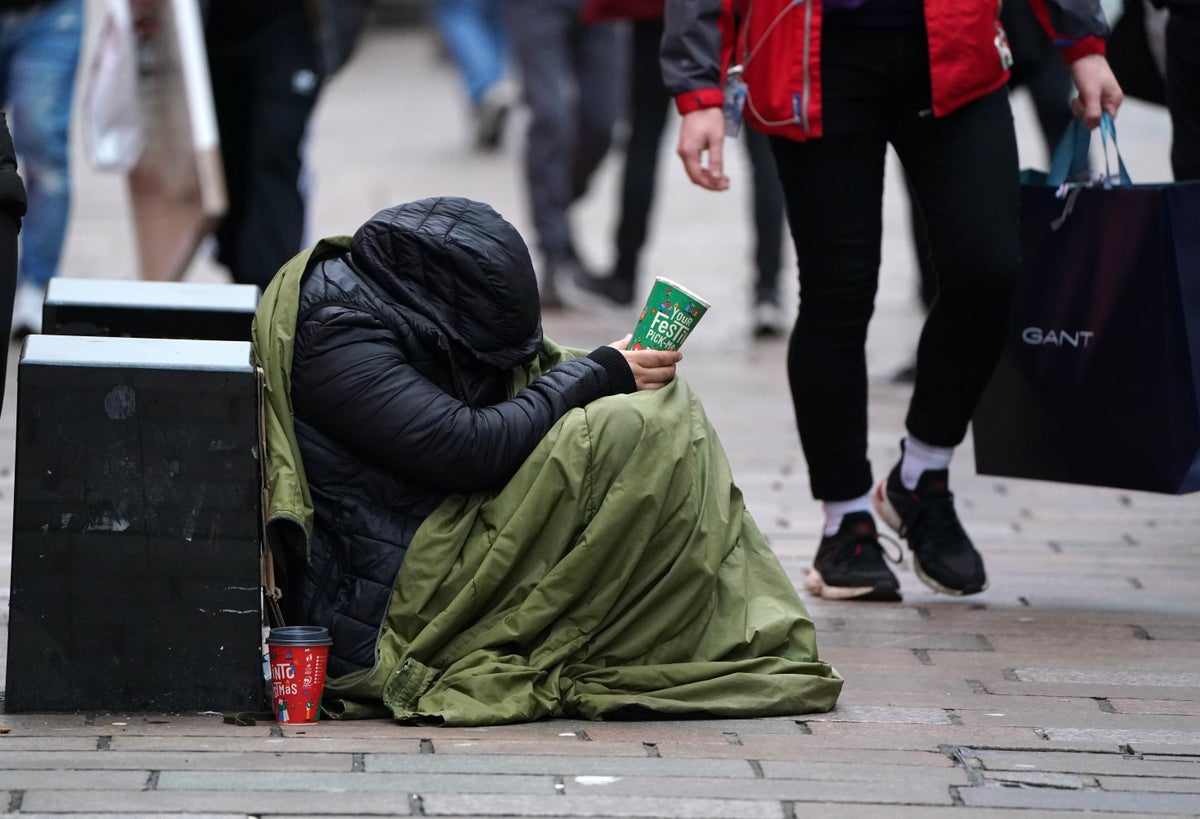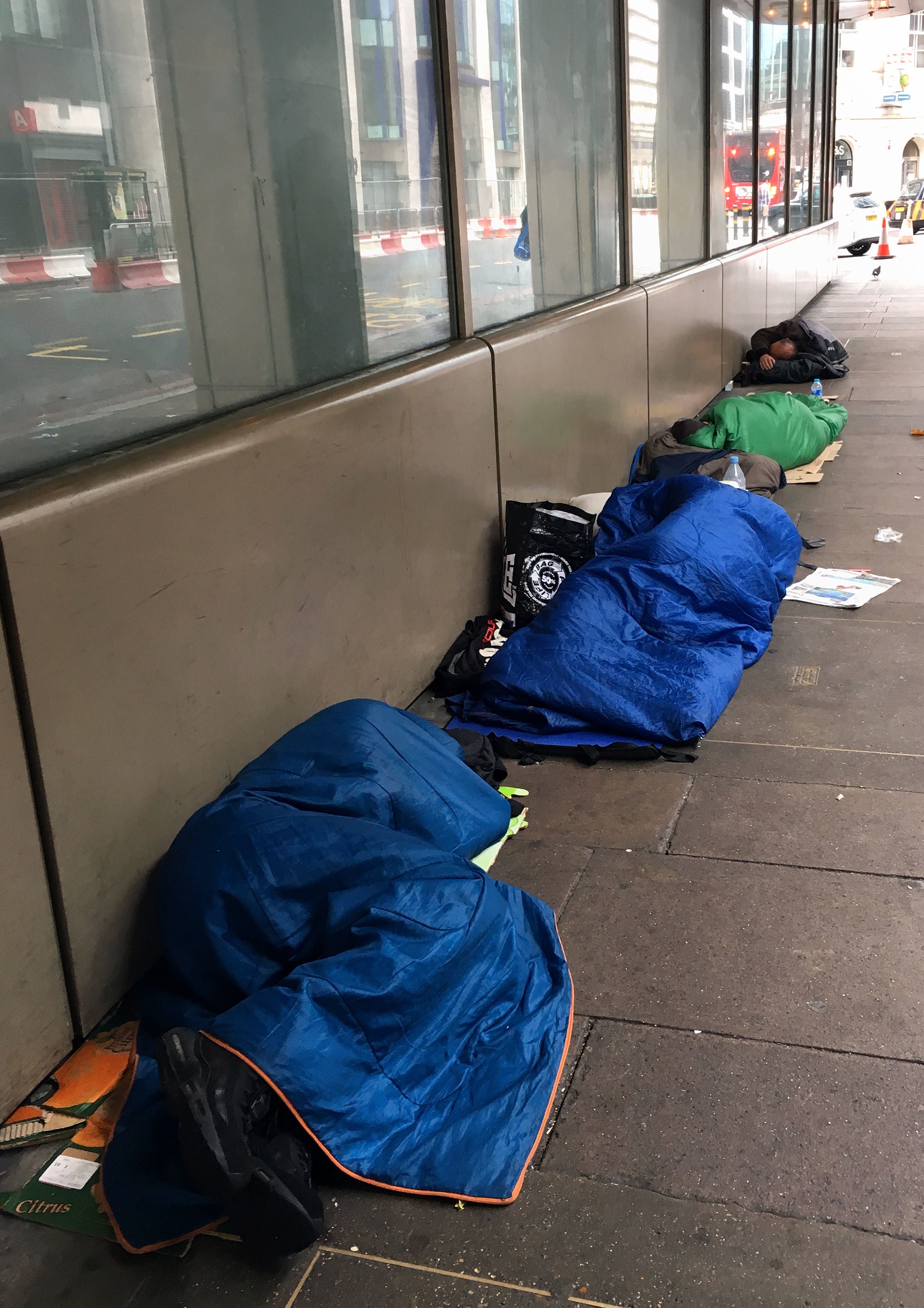
Nearly one in three adults are worried about becoming homeless in the next five years as a result of rising housing costs, a survey for Amnesty International has found.
Thirty one per cent of people are concerned that they could end up sofa-surfing or in temporary accommodation in the near future, researchers said.
The survey, of 2,264 adults, was reported alongside a new study into homelessness by the rights charity.
It is calling on the government to make access to temporary accommodation easier and to get rid of immigration restrictions.
“Housing is a human right, not a luxury and it needs to be protected in law. The current housing system in England is simply not fit for purpose. It needs wholesale reform to restore fairness and compassion,” chief executive Sacha Deshmukh said.
The charity found that a further two in five adults said they were concerned that someone they know will end up without a home.
The report argued that thousands of people are being excluded from accessing their rights to shelter in the UK.
It also found that one of the main causes of widespread and prolonged homelessness was the lack of affordable housing.
It said 283,440 households applied for homelessness assistance in England between October 2020 and September 2021. However the actual figure for the number of homeless households is likely to be much larger.
Local authorities have no duty to provide homeless shelter to many people who are subject to immigration control, the report said. People who have “no recourse to public funds” and undocumented migrants are two of these groups.

“Many people subject to immigrations restrictions are excluded both from public funds and permission to work,” Ms Deshmukh said. “Made unable to support themselves and denied housing help, they inevitably end up sleeping rough. The system is rigged against them.”
Councils also don’t have a duty to provide for people who are not recognised as being in “priority need” for housing, or for those who are deemed “intentionally homeless”.
The charity raised concerns that people were falling through the cracks. Because councils support homeless people who are deemed to have “priority need”, such as pregnant women or those with dependent children, many of those classified as “single homeless” can be left without support.
Amnesty International said that it had interviewed at least six women who had their children taken into care by social services and so were deemed “single homeless” and not a priority.
Eugene, not her real name, said that she was made homeless after no arrangements were made for her and her children after they were evicted from temporary accommodation in mid 2021. She had applied for homelessness support from her council but heard nothing.
“I was standing on the street with my little boy who was six years old and all my belongings,” she said.
After receiving help from a charity, she managed to get support from the local authority who put her up in a hotel and then into temporary accommodation.
Researchers spoke to 82 people with experiences of homelessness for the report.
Edward, a 55-year-old army veteran, whose name has been changed to protect his identity, was sleeping rough in the doorways of a high street when he was interviewed. He told Amnesty that he had been diagnosed with chronic obstructive pulmonary disease and fibromyalgia.
“I don’t want to sleep in a tent, my sleeping bag and blanket are enough,” he said. He added that he avoided the homeless hostel “like the plague” because he had heard that it was “run down and with a lot of drug users”.
Philip, whose name was also changed, said that drug and alcohol use in hostels was common. “That is setting up someone to fail,” he told Amnesty. “It’s feeling trapped, that’s the worst thing. It’s feeling like you don’t have a reason not to go back to drugs.”
In 2021, the average age of death for people sleeping rough or in homelessness accommodation was 45.9 years for men and 41.6 years for women.
More than half of the adults surveyed, 54 per cent, said that they had assumed a person was homeless due to individual circumstances. Only 36 per cent said they considered the government responsible for failing to provide sufficient housing.
A spokesperson for the Department for Levelling Up, Housing and Communities, responded to the report, saying: “Over the next three years, we are giving councils £2billion to tackle homelessness and rough sleeping which can be used to help anyone, included those with restricted eligibility, as long as the council is acting within the law in doing so.
“There are safeguards in place to ensure vulnerable migrants who are destitute and have other needs, such as supporting children, can receive help and can also apply to have their no recourse to public funds conditions lifted.”
Savanta ComRes interviewed 2,264 UK adults aged 18+ online between 27 and 29 May 2022 for the survey that featured alongside Amnesty’s homelessness report.







